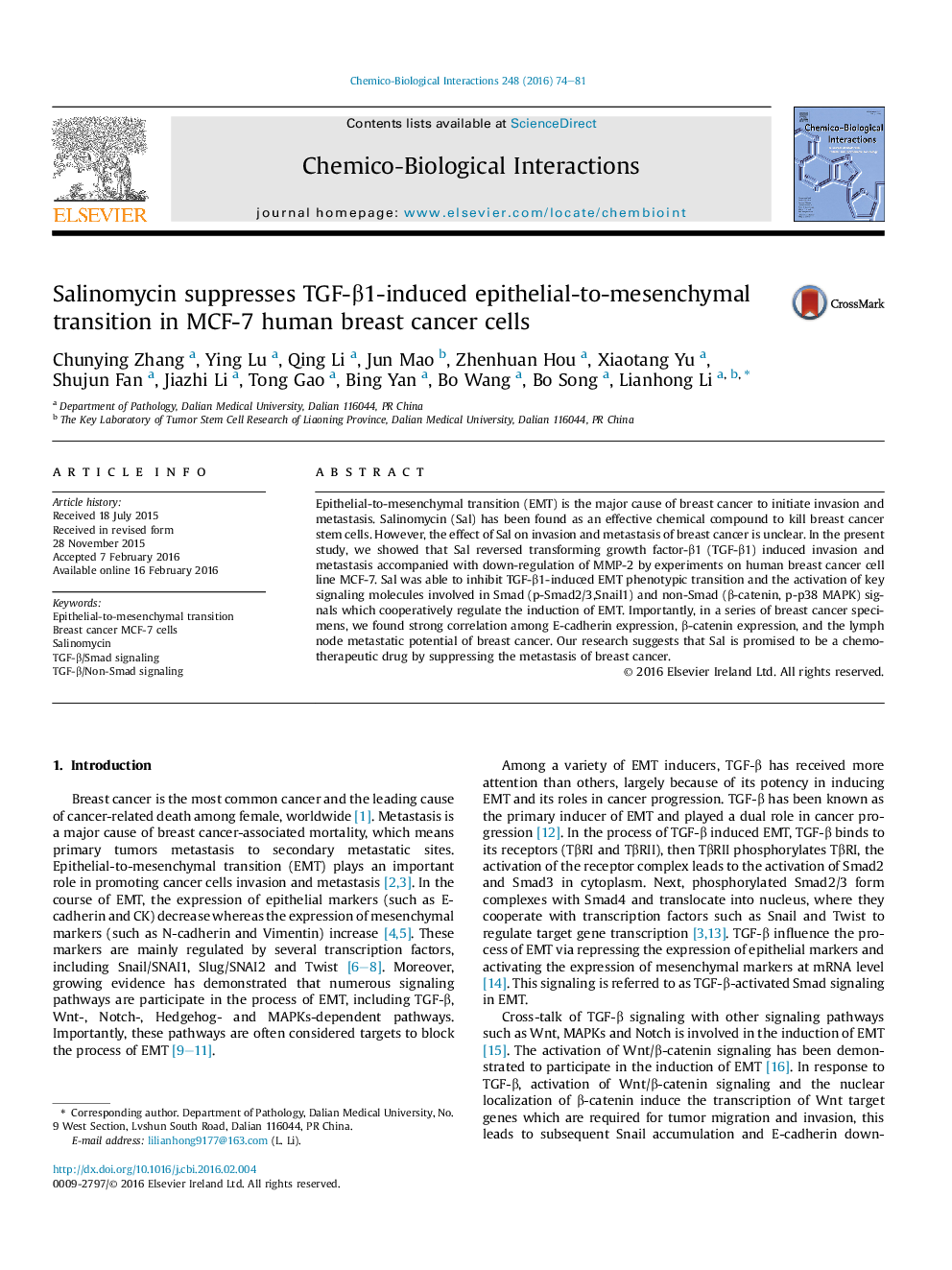| کد مقاله | کد نشریه | سال انتشار | مقاله انگلیسی | نسخه تمام متن |
|---|---|---|---|---|
| 2580025 | 1561593 | 2016 | 8 صفحه PDF | دانلود رایگان |

• Sal inhibits TGF-β1-induced invasion and migration.
• Sal inhibits TGF-β1-induced EMT.
• Sal inhibits TGF-β1-induced activation of Smad signaling.
• Sal inhibits TGF-β1-induced activation of non-Smad signaling.
• Correlation among E-cadherin, β-catenin, and metastatic potential of breast cancer.
Epithelial-to-mesenchymal transition (EMT) is the major cause of breast cancer to initiate invasion and metastasis. Salinomycin (Sal) has been found as an effective chemical compound to kill breast cancer stem cells. However, the effect of Sal on invasion and metastasis of breast cancer is unclear. In the present study, we showed that Sal reversed transforming growth factor-β1 (TGF-β1) induced invasion and metastasis accompanied with down-regulation of MMP-2 by experiments on human breast cancer cell line MCF-7. Sal was able to inhibit TGF-β1-induced EMT phenotypic transition and the activation of key signaling molecules involved in Smad (p-Smad2/3,Snail1) and non-Smad (β-catenin, p-p38 MAPK) signals which cooperatively regulate the induction of EMT. Importantly, in a series of breast cancer specimens, we found strong correlation among E-cadherin expression, β-catenin expression, and the lymph node metastatic potential of breast cancer. Our research suggests that Sal is promised to be a chemotherapeutic drug by suppressing the metastasis of breast cancer.
Journal: Chemico-Biological Interactions - Volume 248, 25 March 2016, Pages 74–81